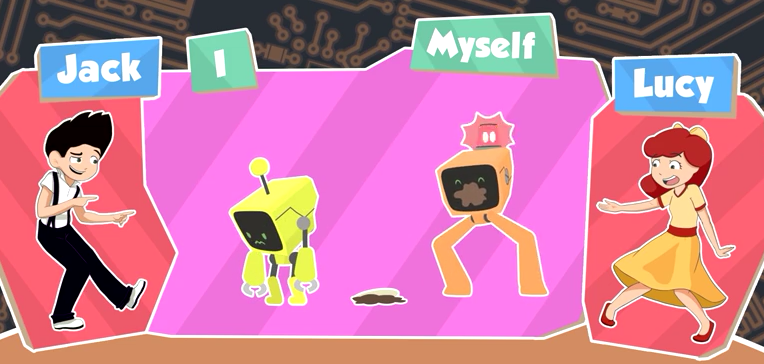Then what about "myself?"
那myself呢?
This grand character is often substituted for "me" and "I" because it seems more impressive.
這個角色重要的詞常常用來取代me和I,因為這樣聽起來比較厲害。
"Please tell Jack or myself" may sound elegant, but in fact, "me" is the right pronoun here.
例如:“請告訴Jack和我自己(myself)”這句話聽起來可能很優雅但其實,“me”才是正確的代詞。
So where should you use "myself"?
所以myself應該用在哪里?

In its function as a reflexive pronoun, "myself" only works if it's the object of a sentence whose subject is "I."
身為反身代詞,“myself” 只能在句子的主格是 "I" 時,myself當賓格才是正確的。
"I consider myself the most important pronoun at this year's party."
例如:我(I)認為自己(myself)是今年派對中最重要的代詞。
"Myself" can also add emphasis as an intensive pronoun.
Myself 也可以當強調代詞。
"I, myself, have heard others agree."
例如:我(I)自己(myself)有聽到其他人同意。
The sentence works without it, but that extra pronoun gives it oomph.
這句子沒有了myself 也對,但加了myself 便增加了其強調性。
To check if "myself" belongs in a sentence, simply ensure that there's also an "I" that it's reflecting or intensifying.
要看看 myself 到底屬不屬于某句子,就只要看那個句子里有沒有一個被反射或強調的 I。
So that's "me," "myself," and "I," ever ready to represent you, yourself, and you.
所以,以上就是me、myself、 I 三種我的用法,三者隨時可用來表示you、 yourself、you三種角色的你。











